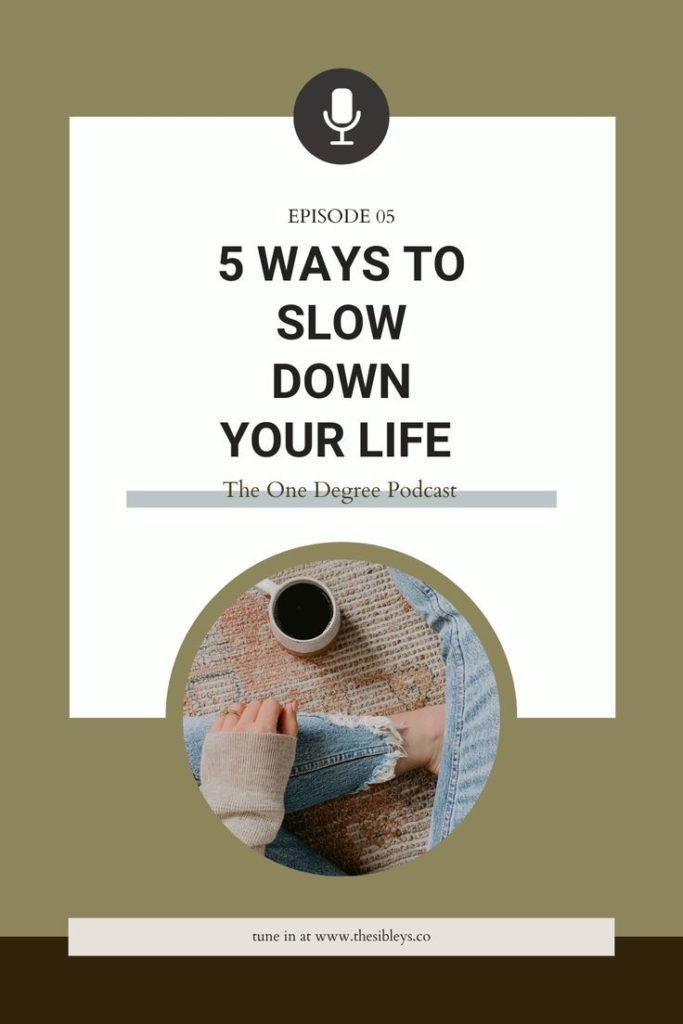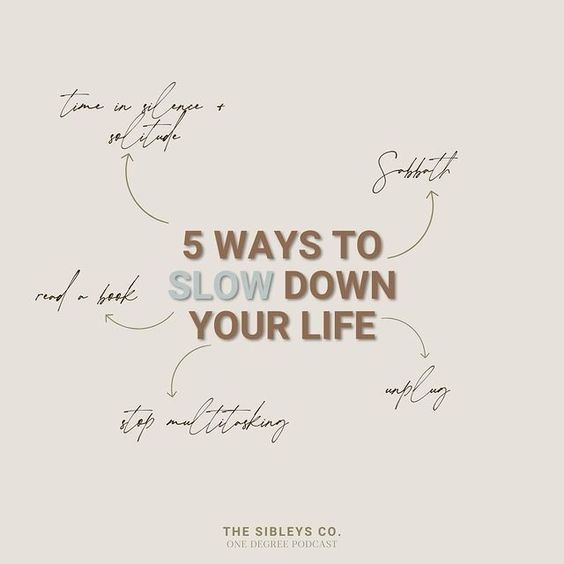How do I slow down when I have so many responsibilities I’m juggling? How do I get silence and rest when I have little ones?
In a culture of hurry, hustle, and bustle, the tension between keeping up and desperately desiring to change pace is a real struggle.
In this episode we discuss:
- Why we need rest and how we were designed for it
- How to implement a Sabbath into your weekly rhythms
- Fighting technology addictions and habits to restore rest in our minds
- The importance of regular silence and solitude
- How to practically slow down in our daily lives, despite all of life’s demands

A Story of a Famous Female Attorney
Some of y’all may have heard the story of a famous female who was a prominent attorney in Los Angeles. She had all of the wealth, prosperity, and accolades, but they could never fulfill her. In her own words she never felt…..“happy.”
If you are familiar with the movie Cars and Lightning McQueen, of course you know that this was Sally Carrera.
Our Society
Trending towards slow
As a whole, it seems that in recent years our society is trending towards this idea of slowing down. There is a growing emphasis on work-life balance, meditating, books like “To Hell with the Hustle” and “Ruthless Elimination of Hurry,” etc.
However, few people are able to successfully slow down their lives. And we still have huge public figures like Elon Musk that are praising workers for “burning the 3AM oil.”
Most of us have the time

Maybe this is a hot take, but we’d argue that most of us have the time to slow down our lives. The problem is that distractions – our phones, TVs, social media – get in the way of us doing so.
For a lot of us, we think a 4 day workweek, or few responsibilities, will solve our pace problems. But really, if we can’t put in rhythms of rest with our current schedule, we most likely will not be able to if/when we get additional free time in our days.
For Nathaniel, the time of greatest intentional rest in his life came in the midst of working a full-time job, a part-time job, being in school for his Masters, and having two-under-two babies at home. The point: rest isn’t just achieved through big gaps of time in our schedules.
But why bother with rest?
God, our Creator who knows our inmost details, designed us to slow down. He Himself models this in the Creation account when he rests on the seventh day. He commands this with the Sabbath in the Ten Commandments. Our dependence on rest and our inability to work 24/7/365 forces us to recognize our own limitations, and hopefully to rely on a God who doesn’t physically need any rest.
The truth is, even the most hardworking people in the world literally have to sleep to survive.
1. Implement a Sabbath
Whether you believe the command to Sabbath is binding or not, most everyone would agree that it is a beneficial practice to have in our life. Why would we not want to accept a command, whether binding or not, to rest and delight in all the Lord has given us?
What is a Sabbath?
A Sabbath can be considered a 24-hour period of worshipful rest.
It is a time where we stop working, stop thinking about work, and stop making to-do lists about what we’ll do when we get back to work.
It is a time to deliberately rest – our minds, bodies and souls.
It is a time to fill the schedule with activities that stir our affection for God – activities that cause us to purposely delight in His goodness and His gifts.
It is a time to intentionally worship.
We should be living from our rest, from our Sabbath. It should be the fuel we work from, just as much as it is the rest we look forward to.
2. Radically fight the addiction to technology

The stimulation of our brains and the constant inundation of news, people’s life events, and everything else we consume keeps us in such a mental state of hurry and stimulation.
It doesn’t necessarily require you sell your iPhone and buy a Light Phone (though rad if you do).
Start by setting screen time limits and have your spouse/roommate/friend set a password for those limits that you don’t know.
Start parenting your phone. AKA it goes to “sleep” before you do, and “wakes up” after you do. This will likely require you put your phone in a drawer or on a counter in a different room to charge at night. And, waking up to a real alarm clock.
Remove social media and email apps from your phone. Digitally declutter all the stimulation that is so readily available at your fingertips so your eyes and brain can rest.
3. Read books

Slowing down isn’t all about subtracting things. It can be about adding good, slow things too.
Our attention spans have suffered as a result of technology, but implementing good old fashioned books is a good way to reverse the damage. Sitting down to read forces us to focus, and to not multitask. An audiobook is nice, but sometimes the discipline of sitting down and simply doing one thing at a time is good for the soul. It forces us to focus on what’s in front of us without creating other distractions.
Xan’s been getting in the habit of reading every night before bed as the last thing before sleep. It helps slow her down and get sleepy, and not go to bed with a million things circulating her mind.
4. Implement times of silence and solitude
Setting aside times to pray each day and each week for extended periods of time is an excellent discipline to incorporate. It will take a while at first for your brain to calm down and focus, but the fruitfulness of these times will grow.
5. Purposely do things without multitasking
Unload the dishwasher without listening to a podcast or watching a YouTube video, fold laundry without watching a show, or clean up the living room without listening to music. Just simply be present with the single task before you.
This suggestion isn’t because it’s bad to multitask, but the act of purposely not is a good way to train our brains (and bodies) to slow down and focus.

Your One Degree Shift
Don’t focus on doing all five of these things immediately. Choose one and focus on implementing it well this next week.

Want more?
In a Culture of Quick Fixes, Play the Long Game

+ show Comments
- Hide Comments
add a comment